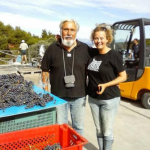As Novac/Matej Devcic writes on the 6th of January, 2020, the Indiegogo crowdfunding platform, which has hitherto been one of the most important channels for raising money through Croatian crowdfunding campaigns and has given them the opportunity to present projects online and to get people from all over the world to pay for their realisation, is no longer active in the Republic of Croatia.
Thanks to the Indiegogo platform, projects such as MakerPhone and MakerBuin of the Karlovac-based startup CircuitMess, behind which stands Albert Gajšak, have been successfully realised.
As Hrvoje Hafner, author of the crowdfunding.hr blog and the person most commonly referred to when referring to Croatian crowdfunding, explains, Croatia’s removal from the list of countries from which it is possible to launch a campaign on Indiegogo was due to the termination of the contract between Indiegogo and PayPal.
”Two years ago, Indiegogo signed a partnership agreement with the American card processor Stripe to optimise its business operations. During those two years, Indiegogo gradually migrated payment transactions exclusively to card payments with the new payment processor. During the summer of 2019, it was no longer possible to launch new crowdfunding campaigns on the Indiegogo platform from countries whose bank accounts were not on the list of countries approved by the Stripe processor,” explains Hafner.
He claims that the reason Croatia is no longer on the Indiegogo platform list is that the Stripe payment processor is not supported in Croatia, and it is now the exclusive processor for that crowdfunding platform. As soon as it is available in Croatia, Hafner believes it will be possible to start crowdfunding campaigns in Croatia once again.
Less than two years ago, one Slovenian bank started negotiations with Stripe to make payments, and since last autumn, Slovenia has been successfully listed.
”Now it’s only a matter of time before, let’s say, Kickstarter will be available in Slovenia. Unfortunately, so far I have no information as to whether any bank operating in Croatia is negotiating with Stripe,” says Hafner.
The absence of the Indiegogo platform in Croatia will be tried to be patched up by the Croatian Chamber of Commerce (HGK), which announced that it will launch its own crowdfunding platform at the beginning of this year, which will be included in the existing Digital Chamber (Digitalna komora) project.
”The idea of a crowdfunding platform came about during the development of the Digital Chamber project, that is, the e-business startup service. The service is of a primarily informative nature, and is divided into thematic units that follow the development course of the business entity, from its very establishment through to development and financing to actual programmes and projects. The logical consequence was to offer those who run the business an additional benefit. Crowdfunding is an ideal strategy for start-ups, associations or businesses. Prior to crowdfunding, business owners were subject to the demands of investors or banks, and now they have the opportunity to present a business plan to the masses,” they say from the Croatian Chamber of Commerce.
They state that the completion of the Digital Chamber project will be followed by a phase of specification for the platform. Hafner, on the other hand, finds it very unusual to see the announcement by the Croatian Chamber of Commerce that they are launching a crowdfunding platform.
”Recently, at some business plan workshops, their employees claimed that crowdfunding was a pyramid scheme, while Kickstarter claimed it was an investment fund. If the Croatian Chamber of Commerce really does go ahead with launching and running a crowdfunding platform, I think it will be the first such case in the world, which is not necessarily a good thing,” Hafner claims.
He adds that the launch of the crowdfunding platform by the Croatian Chamber of Commerce, according to the information he has, is at the level of the idea without any actual clear plan of action.
”This kind of launch of a crowdfunding platform by the Croatian Chamber of Commerce in the form of assistance to local entrepreneurs makes as much sense as launching a webshop with local products that would also be run by the Croatian Chamber of Commerce,” says Hafner.
He points out that, in his view, Croatian institutions did not recognise the potential of crowdfunding in a timely manner, nor did they evaluate it in any particular way, as can be seen in the case of the Croatian Chamber of Commerce, which, according to Hafner, is going in the totally wrong direction.
The termination of domestic campaigns on other crowdfunding platforms has been extremely difficult for entrepreneurs, artists and socialites in Croatia, as Hafner explains. He claims that for Croatian campaigns, Indiegogo was the only realistic option for more serious success.
“Although there are alternatives like the French crowdfunding platform Ulule or the British platform GoGetFunding, I don’t think it will be too successful,” Hafner said.
He explains that more or less all crowdfunding platforms function by financing their business by taking a percentage of the money raised for projects, and that there are no longer all that many differences between Indiegogo and Kickstarter platforms as there once were before.
Make sure to follow our dedicated business page for much more.










